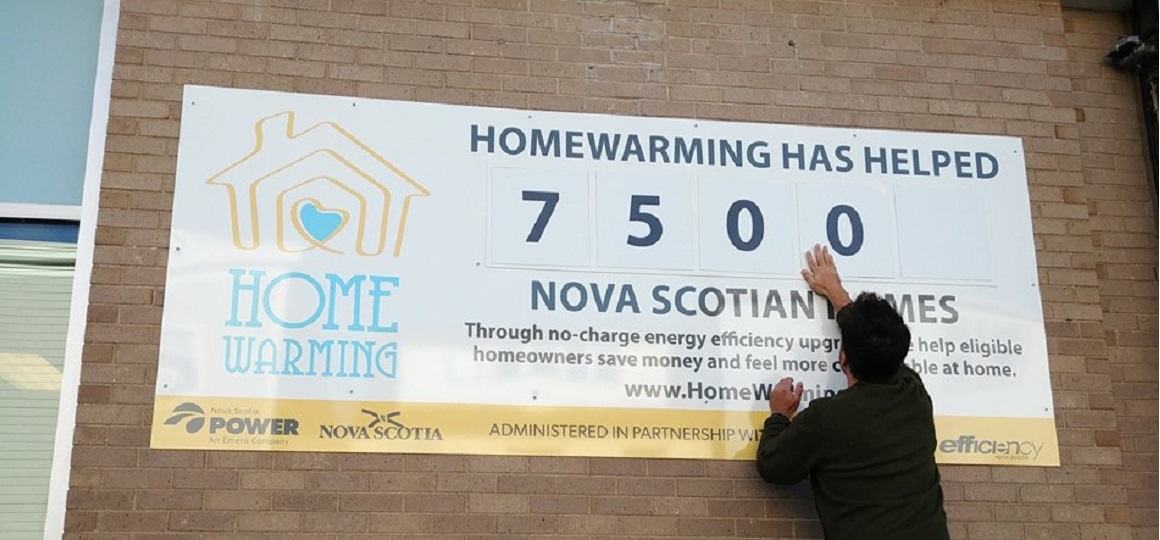Energy Conservation Tips
Energy Myths Revealed
Myth 1:
It’s more efficient to leave a room at a constant temperature than turning the heat down overnight (or when you’re not home)
Fact 1:
It takes less energy to warm up a cold room in the morning than it does to maintain a constant temperature throughout the night. If you have baseboard heaters, know that they supply heat to each room individually. If you have thermostats in separate rooms, you can use the concept of "zones" to heat certain areas of your home more than others, which saves up to 20% in heating usage compared to heating both occupied and unoccupied areas. Be sure not to vary the temperature between rooms by more than 2C.
Look through your house at the beginning and end of the day to make certain your heat use matches your room use. Close doors to rarely occupied rooms and areas.
Myth 2:
Turning the thermostat up higher than the desired temperature makes the room heat up faster.
Fact 2:
It takes the same amount of time for the temperature to reach 20 degrees whether the thermostat is set at 20 or 30 degrees.
Myth 3:
Changing my energy use will not result in worthwhile savings.
Fact 3:
You can save hundreds of dollars each year by turning off lights, TVs and computers when they’re not in use, lowering thermostat settings when away and washing clothes in cold water. Take a look at Efficiency Nova Scotia's energy calculator to spot energy saving opportunities.
Myth 4:
Insulating my attic or basement will cause more heat to leak out of the windows.
Fact 4:
Adding insulation to one part of a home saves energy and will not increase heat loss elsewhere.
Myth 5:
Leaving a ceiling fan on will cool the room even when you’re not there.
Fact 5:
Fans work by cooling the skin, not the air in a room. Fans move the air which helps to evaporate moisture on the surface of the skin, making you feel cooler. Since fans don’t actually change the air temperature there is no need to have them running if you aren’t in the room.
Myth 6:
It’s more efficient to leave lights on rather than turning them off because flicking the switch uses so much energy.
Fact 6:
It’s always more efficient to turn the lights off when the room is not being used.
Myth 7:
It’s better to leave your computer running all the time because turning it on uses so much energy.
Fact 7:
You always save energy when you turn your computer off when it’s not in use. Enable the sleep function to conserve energy during brief periods of inactivity.
Myth 8:
Food will cook faster on the stove if you leave the setting on ‘high’.
Fact 8:
Leaving the setting on ‘high’ does not cook food any faster. Using a lid however will bring the water to a boil faster. Once water is boiling, save energy by turning the heat down and maintaining the boil with the pot covered.
Myth 9:
When my TV, DVD player, stereo and computer are turned off, they are not using any electricity.
Fact 9:
These electronic devices use standby power even when turned off. Over a year, this could cost you more than $100. Use a power bar to turn them off completely when they’re not in use.
More helpful energy efficiency information
The HomeWarming Program
It’s important to us that our customers who are living on lower incomes benefit from energy efficiency and feel comfortable at home. Our HomeWarming program offers no-charge energy assessments and free home upgrades to eligible Nova Scotians – the program is offered by EfficiencyOne and Clean Foundation and is proudly sponsored by Nova Scotia Power and the Province of Nova Scotia. You can visit EnergyAssist to learn about other free programs available in Nova Scotia to help you save money on heating and energy.
> Visit HomeWarming | > See all programs at EnergyAssist | > Find out if you are eligible

Efficiency Nova Scotia
Efficiency Nova Scotia manages energy saving programs and services for Nova Scotians. Check out their website for programs that can help you reduce your energy usage and therefore reduce your spending. Energy efficiency often makes your home more comfortable to live in, and more environmentally friendly.
> Visit Efficiency Nova Scotia website


